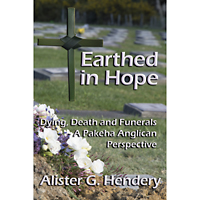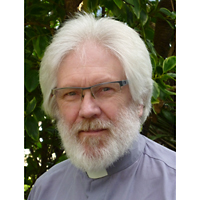“Ministry becomes immensely rewarding when we are able to recognise God’s presence already existing in the lives and experience of the bereaved (in what Denyer calls ‘the baggage’). It is not a matter of taking God to people (or taking people to God). That implies that God is not present in the situation. It is about recognising that God is already existing and active in people’s lives – in their suffering, grieving and dying. Augustine, who has a clear sense of God being present in all places, vigorously challenges a limited view of God’s presence – ‘present entirely everywhere at once.’ The minister’s task is to help people recognise the divine activity and presence, or as Rowan Williams describes it: ‘finding out what God is doing and joining in.’”
From Chapter 5 — How Might We Respond? of Earthed in Hope: Dying, Death and Funerals – A Pakeha Anglican Perspective. By Alister G. Hendery. Order now eBooks or Print book


